This article was co-authored by Tara Coleman and by wikiHow staff writer, Hannah Madden. Tara Coleman is a Clinical Nutritionist who has a private practice in San Diego, California. With over 15 years of experience, Tara specializes in sports nutrition, body confidence, and immune system health and offers personalized nutrition, corporate wellness, and online learning courses. She received a BS in Biology from James Madison University and spent six years in the pharmaceutical industry as an analytical chemist before founding her practice. Tara has been featured on NBC, CBS, Fox, ESPN, and Dr. Oz The Good Life as well as in Forbes, Cosmopolitan, Self, and Runner’s World.
There are 14 references cited in this article, which can be found at the bottom of the page.
This article has been viewed 23,171 times.
Food is an essential part of everyone’s life, but it can become a problem when it’s all you think about. If you are trying to make a change in your diet, you may be struggling with constant thoughts about food that you are craving. To keep food off your mind, try to stay hydrated, distract yourself with a friend, and plan out your meals to reach your goals and start a healthy relationship with food.
Steps
Avoiding Cravings
-
1Drink water to stay hydrated. Sometimes your body gets its signals crossed and tells you that you’re hungry when you really just need some water. Keep a water bottle with you during the day and drink water consistently. If you start to think about food, chug some water to see if it satiates you.[1]
Tip: Drinking water throughout the day also provides other health benefits like clearer skin, improved digestion, and healthier kidneys.[2]
-
2Plan out your meals to feel prepared. Create a 7 day meal plan by writing out what you are going to eat for each meal on each day.[3] Spend 1 day a week preparing lunches to take to work or dinners to pop in the oven. Having meals that are already decided will help you avoid worrying about what you are going to eat next.[4]
- Don’t be too hard on yourself if you divert from your meal plan once or twice.
Advertisement -
3Keep junk food out of the house. If you buy things like cookies, chips, and soda, you’re probably going to think about them while they are sitting in your kitchen. Avoid the temptation by only buying healthy foods that may not seem as appealing to you. Create a grocery list before you go shopping and stick to it as much as you can.[5]
- Processed foods often have more sugar and chemicals in them that makes your body crave them more. Avoiding those foods will help break the cycle of your cravings.
- You may have “trigger foods,” or foods that you can’t stop thinking about until you eat them. Try to recognize what those are and avoid them completely. Common trigger foods include potato chips, snack cakes, and cookies.
- Never go to the grocery store while you are hungry. This can cause you to buy unhealthy food that you are craving.
-
4Eat more protein to feel fuller. Eating lean protein is an excellent way to stop your cravings by feeling full. Chicken, beef, fish, and beans are all proteins that will take longer to digest, so they will make you feel fuller for longer.[6]
- Eating lean protein also adds to your muscle mass and keeps your blood sugar steady.
- Avoid eating foods like white bread or baked potatoes, as they digest quickly and will leave you feeling hungry.
-
5Add healthy fats to your diet. Your body often craves fat, and for a good reason. Fat helps the body stabilize its cholesterol levels and can improve the health of your heart.[7] Add foods like avocados, walnuts, sunflower seeds, and fish into your diet to satisfy your fat cravings.[8]
- Saturated fats are healthy in moderation, but many foods have too much saturated fats in them. Pizza, cookies, and fast food all have high levels of saturated fats that are harmful to your health.
- Check the label on your food for trans fat or saturated fat and try to limit the food you eat with those ingredients.[9]
-
6Reduce your stress levels with meditation and exercise. If you’re a stress-eater, your thoughts may turn to food whenever you need to calm down. Try to reduce your stress levels with meditation, exercise, and deep-breathing instead of food. Managing your stress in a healthy way is also beneficial to your overall health.[10]
- If you are struggling with managing your stress levels, talk to a mental health professional.
-
7Get enough sleep every night. When you’re tired, your body craves caffeine and sugar to give you a boost. Try to get about 8 hours of sleep each night so that you feel rested and awake the next morning. Getting enough sleep each night is also beneficial to your overall health.[11]
- You may need more than 8 hours of sleep a night, especially if you are still growing.
Distracting Yourself
-
1Do a fun physical activity that you enjoy. If you’re starting to think about food, try getting up and going for a walk, a run, or even a round of soccer with your friends. Exercise is a great way to keep your mind and body occupied while meeting your fitness goals. Try to find a physical activity that you like doing so that you look forward to it.[12]
- Hiking, rock climbing, weight training, and swimming are all great activities to get your body moving.
Tip: If you are an adult, look for amateur sports leagues in your area that you can join.
-
2Get yourself out of the house. If you’re just sitting in your home, you are more likely to think about all the food that is in your kitchen. Go for a walk around the block, run some errands, or head to a movie to keep your mind off of food.[13]
- If you have a pet, take them for a short walk around your neighborhood as an excuse to get out of the house.
-
3Call a friend for support. If you’ve shared your struggles with a friend or family member, call them up as a distraction when you are thinking about food. Even if you haven’t talked about your problem, you can still catch up with a friend as a way to keep your mind off of food. Ask them about their life, hobbies, and what they are enjoying lately.[14]
- If you have a friend who is also struggling to keep their mind off of food, they may appreciate you sharing your struggles with them.
-
4Finish chores around the house. There’s no better feeling than checking things off of your to-do list. Tackle chores you’ve been meaning to finish like doing the laundry, washing the dishes, mopping the floor, and changing your sheets. You’ll keep your mind off of food while also decluttering your living space.[15]
- Keeping your living area clutter-free can help improve your overall mood and mental health.
-
5Chew sugarless gum to trick your mind. You may be able to trick your brain into thinking you are eating just by chewing. Buy some sugarless gum to munch on whenever you are thinking about food. Do this in conjunction with another distraction to keep your mind off of your hunger.[16]
- You can find sugarless gum at most grocery stores. Look for the label “sugar free.”
-
6Write in a journal to keep track of your thoughts. Distracting yourself physically is good, but your brain may still be focused on food. Try keeping a diary or journal to write in whenever you feel like food is on your mind. Write down what you did that day, how you are feeling, and what your goals are. Get creative with your journal by adding pictures or stickers as decoration.[17]
- Use a pocket-sized journal to keep with you whenever you might need it.
-
7Watch a funny video to move your thoughts elsewhere. If your brain is fixated on the thought of food, you may need to give it something else to think about. The fastest way to engage your brain is to look up a funny video on social media. Try search terms like “funny animals” or “hilarious pranks.”[18]
- YouTube is a great site for finding videos to distract yourself.
Warnings
- If you feel unusually hungry all the time, talk to your doctor to see if you have an underlying medical condition that is causing your hunger.⧼thumbs_response⧽
References
- ↑ https://www.cdc.gov/healthywater/drinking/nutrition/index.html
- ↑ https://www.cdc.gov/healthywater/drinking/nutrition/index.html
- ↑ Tara Coleman. Clinical Nutritionist. Expert Interview. 22 October 2020.
- ↑ https://www.helpguide.org/articles/healthy-eating/healthy-eating.htm
- ↑ https://raisingchildren.net.au/teens/healthy-lifestyle/healthy-eating-habits/healthy-eating-habits-teens
- ↑ https://www.hsph.harvard.edu/nutritionsource/2014/02/14/protein-carbs-and-weight-loss/
- ↑ Tara Coleman. Clinical Nutritionist. Expert Interview. 22 October 2020.
- ↑ https://www.hsph.harvard.edu/nutritionsource/what-should-you-eat/fats-and-cholesterol/types-of-fat/
- ↑ https://www.helpguide.org/articles/healthy-eating/choosing-healthy-fats.htm
- ↑ https://www.helpguide.org/articles/diets/emotional-eating.htm
- ↑ http://healthysleep.med.harvard.edu/need-sleep/whats-in-it-for-you/health
- ↑ https://www.niddk.nih.gov/health-information/diet-nutrition/changing-habits-better-health
- ↑ https://www.helpguide.org/articles/diets/how-to-lose-weight-and-keep-it-off.htm
- ↑ https://www.niddk.nih.gov/health-information/diet-nutrition/changing-habits-better-health
- ↑ https://familydoctor.org/what-you-should-know-before-you-start-a-weight-loss-plan/
- ↑ https://blanchfield.tricare.mil/Portals/70/S5_HO_10_Tips_For_Coping_with_Food_Cravings.pdf
- ↑ https://www.helpguide.org/articles/diets/emotional-eating.htm
- ↑ https://www.helpguide.org/articles/eating-disorders/binge-eating-disorder.htm
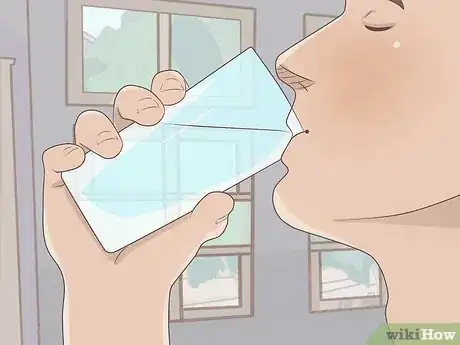
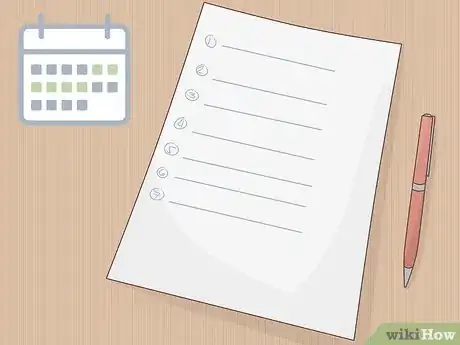


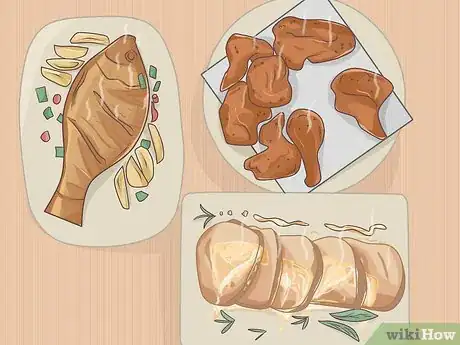
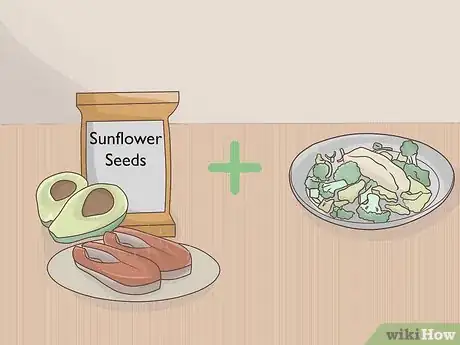

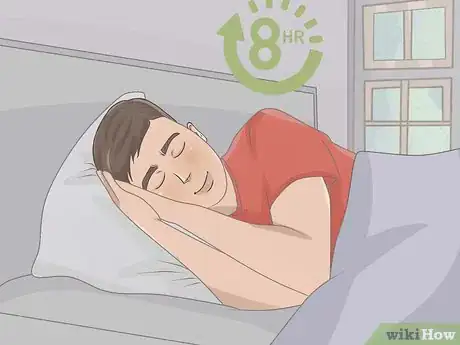



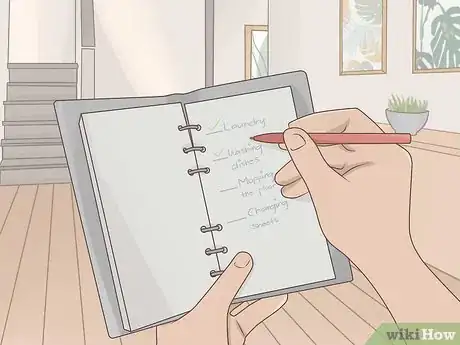
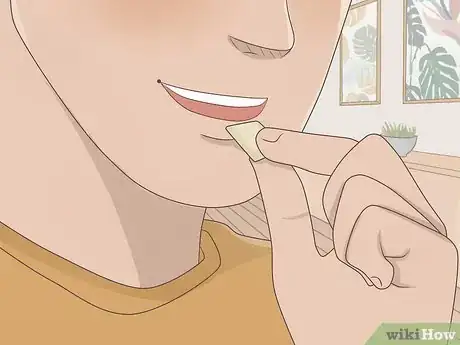




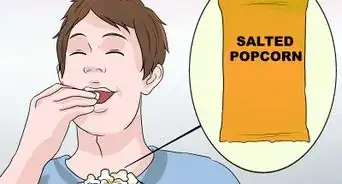









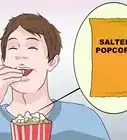
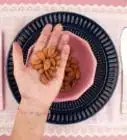



































Medical Disclaimer
The content of this article is not intended to be a substitute for professional medical advice, examination, diagnosis, or treatment. You should always contact your doctor or other qualified healthcare professional before starting, changing, or stopping any kind of health treatment.
Read More...